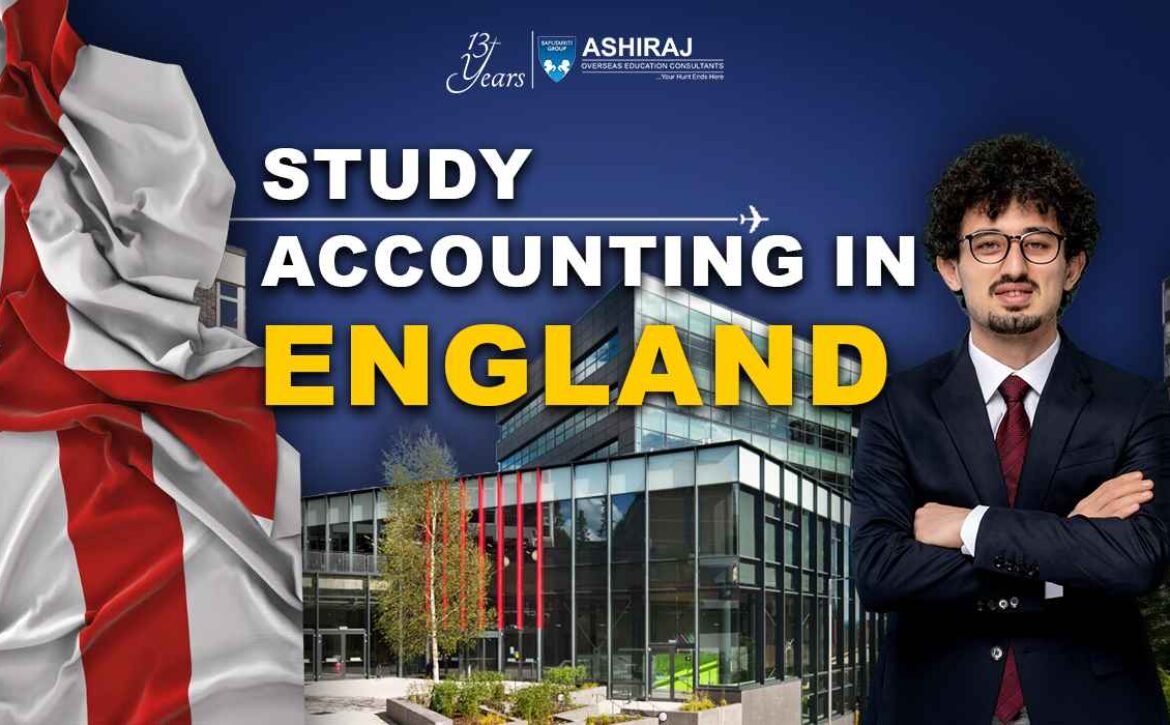
Accounting in England
Accounting in England encompasses a rich tradition of financial expertise deeply embedded in the country’s economic fabric. Renowned for its rigorous academic standards and adherence to international accounting principles, England offers a diverse array of opportunities for students and professionals alike. The discipline plays a vital role in the functioning of businesses, governmental organizations, and non-profit entities, ensuring transparency, accountability, and sound financial management practices. With its dynamic business environment and status as a global financial hub, England provides an ideal setting for studying and practicing accounting.
In England, accounting education is characterized by its comprehensive curriculum, which encompasses a wide range of topics including financial reporting, auditing, taxation, and management accounting. Institutions across the country offer specialized programs tailored to meet the evolving needs of the industry, equipping students with the knowledge and skills necessary to excel in diverse accounting roles. Whether aspiring to work in public practice, corporate finance, or governmental accounting, studying Accounting in England provides a solid foundation for a successful and fulfilling career in the field.
Why to Study Accounting in England?
- Global Reputation: England is internationally recognized for its high-quality education and renowned accounting programs, offering students a prestigious academic experience.
- Financial Hub: As a global financial center, England provides abundant opportunities for networking and internships in prestigious accounting firms and financial institutions, facilitating career growth and development.
- Adherence to International Standards: Accounting programs in England align with international accounting standards such as IFRS (International Financial Reporting Standards), ensuring graduates are well-prepared for global careers in accounting.
- Diverse Career Paths: Studying accounting in England opens doors to a wide range of career paths, including public accounting, corporate finance, taxation, auditing, and consultancy, catering to diverse interests and aspirations.
- Innovative Teaching Methods: English universities employ innovative teaching methods, including practical case studies and real-world projects, to provide students with hands-on experience and prepare them for the dynamic nature of the accounting profession.
- Cultural Experience: Studying in England offers a rich cultural experience, with opportunities to explore historic cities, engage in vibrant student life, and build global connections, enhancing the overall educational journey.
- Industry Links: Many accounting programs in England have strong links with industry partners, providing students with access to guest lectures, networking events, and internship opportunities to gain practical insights and enhance employability.
- Internationally Recognized Qualifications: Graduates of accounting programs in England hold qualifications that are respected worldwide, increasing their competitiveness in the global job market.
Studying accounting in England provides a unique blend of academic excellence, global opportunities, and cultural experiences, making it an ideal choice for aspiring accountants looking to launch successful careers in Accounting in England.
Top Universities to Study Accounting in England
University | QS World University Ranking 2023 | Type of University | Average Annual Fees | Programs Offered |
University of Oxford | 1 | Public | £9,250 – £58,600 | Undergraduate: Accounting and Finance |
University of Cambridge | 2 | Public | £9,250 – £56,286 | Undergraduate: Accounting and Finance |
London School of Economics and Political Science (LSE) | 4 | Public | £9,250 – £28,815 | Undergraduate: Accounting and Finance |
Imperial College London | 6 | Public | £9,250 – £32,700 | Undergraduate: Accounting and Finance |
University College London (UCL) | 8 | Public | £9,250 – £32,145 | Undergraduate: Accounting and Finance |
- University of Oxford: Renowned for its academic excellence, Oxford offers undergraduate programs in Accounting and Finance, providing students with a rigorous education and access to world-class faculty.
- University of Cambridge: Cambridge’s undergraduate program in Accounting and Finance is highly regarded, offering students a comprehensive education and opportunities for research and professional development.
- London School of Economics and Political Science (LSE): LSE’s undergraduate program in Accounting and Finance provides students with a multidisciplinary approach to the study of accounting, incorporating economics, politics, and social sciences.
- Imperial College London: Imperial College’s undergraduate program in Accounting and Finance emphasizes innovation and entrepreneurship, preparing students for leadership roles in the accounting profession.
- University College London (UCL): UCL’s undergraduate program in Accounting and Finance offers students a diverse and inclusive learning environment, with opportunities for hands-on experience and industry engagement.
These top universities in England for Accounting offer high-quality education, diverse programs, and opportunities for academic and professional growth, making them ideal choices for students aspiring to pursue careers in Accounting in England.
Course Curriculum for Accounting in England
- Foundational Courses: The curriculum typically starts with foundational courses covering accounting principles, financial reporting, and basic economic concepts, providing students with a strong fundamental understanding of the discipline.
- Advanced Accounting Topics: As students progress, they delve into more advanced topics such as managerial accounting, auditing, taxation, and financial analysis, equipping them with comprehensive knowledge and skills relevant to accounting practice.
- Professional Development: Many programs emphasize professional development by integrating opportunities for internships, placements, or industry projects, allowing students to apply theoretical knowledge in real-world settings and develop practical skills.
- Specializations: Students often have the option to specialize in specific areas of accounting such as financial accounting, management accounting, or auditing, tailoring their studies to align with their career aspirations and interests.
- Ethical and Regulatory Considerations: The curriculum also addresses ethical considerations and regulatory frameworks governing accounting practices, ensuring students understand their responsibilities as professionals and adhere to industry standards.
- Integration of Technology: With the increasing role of technology in accounting, courses may include modules on accounting software, data analytics, or digital finance, preparing students for the evolving technological landscape of the accounting profession.
- Research Opportunities: Some programs offer opportunities for research or independent study, allowing students to explore advanced topics in accounting and contribute to the academic discourse in the field.
- Industry Engagement: Universities often foster industry engagement through guest lectures, networking events, and partnerships with accounting firms, providing students with insights into industry trends and networking opportunities with professionals in the field.
The course curriculum of accounting in England is designed to provide students with a comprehensive education that combines theoretical knowledge with practical experience, preparing them for successful careers in Accounting in England.
Eligibility Criteria & Admission Requirements for MS in Accounting in England
- Language Proficiency: Applicants must demonstrate proficiency in English by providing either IELTS scores (minimum 6.5 overall, with no sub-score below 6.0) or TOEFL scores (minimum 90 for the internet-based test).
- Standardized Tests: Some universities may require applicants to submit scores from either the GRE or GMAT exams. Typically, competitive scores range from 155-165 in the Verbal section and 160-170 in the Quantitative section for GRE, while for GMAT, scores around 600-700 are considered competitive.
- Academic Certificates: Applicants are required to submit academic certificates demonstrating completion of secondary education (for undergraduate programs) or a bachelor’s degree (for postgraduate programs). Transcripts detailing coursework and grades are also necessary.
- Work Experience: While not always mandatory, some universities may value relevant work experience in accounting or related fields, especially for postgraduate programs. Applicants can strengthen their candidacy by showcasing professional experience through resumes or recommendation letters.
Table: Scores for Language Proficiency and Standardized Tests
Test | Minimum Score Requirement |
IELTS | Overall 6.5; no sub-score below 6.0 |
TOEFL | Minimum 90 (internet-based test) |
GRE | Verbal: 155-165, Quantitative: 160-170 |
GMAT | Approximately 600-700 |
- Passport & Student Visa: International students must possess a valid passport and obtain a student visa to study in England. This process typically involves submitting the required documents, including proof of acceptance from an English university, financial statements, and health insurance coverage.
Accounting in England programs have specific eligibility criteria, ensuring that students possess the necessary language proficiency, academic qualifications, and potential to succeed in their studies.
Documents Required for Studying Accounting in England
- Passport: A valid passport is essential for international students applying to accounting programs in England, serving as identification and necessary for the student visa application process.
- Two Letters of Recommendation (LOR): LORs from academic or professional sources provide insight into the applicant’s character, achievements, and potential, strengthening their application for Accounting in England programs.
- Statement of Purpose (SOP): The SOP allows applicants to articulate their academic and career goals, reasons for choosing a particular program, and how they plan to contribute to the academic community, highlighting their motivation and suitability for the program.
- Curriculum Vitae (CV): A comprehensive CV outlines the applicant’s educational background, work experience, extracurricular activities, and skills, providing admissions committees with a snapshot of their qualifications and achievements.
- Official High School Transcripts and Educational Certificates: Transcripts and certificates from high school or equivalent institutions verify the applicant’s academic performance and completion of prerequisite coursework for undergraduate accounting programs.
- Work Experience Certificate: For applicants with prior work experience, a work experience certificate validates their professional achievements and contributions, demonstrating their readiness for advanced studies in Accounting in England.
- Proof of Financial Resources: To meet visa requirements, applicants must provide evidence of sufficient financial resources to cover tuition fees, living expenses, and other associated costs while studying in England. This may include bank statements, scholarship awards, or sponsorship letters.
Ensuring the submission of these essential documents is crucial for a successful application to Accounting in England programs, demonstrating readiness and eligibility for academic study in the field.
Admission Process for Accounting in England
- Research Universities: Begin by researching universities in England offering accounting programs. Consider factors such as reputation, program curriculum, faculty expertise, and location to shortlist potential institutions.
- Review Requirements: Carefully review the admission requirements for each university, including academic qualifications, language proficiency tests (IELTS/TOEFL), standardized test scores (GRE/GMAT), and required documents.
- Prepare Documents: Gather all required documents, including transcripts, certificates, letters of recommendation (LORs), statement of purpose (SOP), curriculum vitae (CV), and proof of financial resources.
- Take Language and Standardized Tests: If necessary, schedule and take language proficiency tests (IELTS/TOEFL) and standardized tests (GRE/GMAT) well in advance of application deadlines.
- Complete Online Application: Complete the online application form for your chosen universities, ensuring all information is accurate and all required documents are uploaded.
- Submit Application Fee: Pay the application fee as required by each university. Keep track of deadlines to avoid missing out on opportunities.
- Wait for Decision: After submitting your application, wait for the university to review it. This process may take several weeks to months depending on the institution and program.
- Receive Offer: If successful, you will receive an offer of admission from the university. Review the offer carefully and follow the instructions provided for accepting it.
- Apply for Visa: Once you have accepted an offer, begin the process of applying for a student visa. Prepare all necessary documents, including your passport, admission letter, financial statements, and health insurance.
- Prepare for Departure: Once your visa is approved, make necessary arrangements for accommodation, travel, and other logistics to prepare for your journey to study Accounting in England.
Following these steps systematically can streamline the admission process for studying Accounting in England, ensuring a smooth transition into academic life in the country.
“Education is the most powerful weapon which you can use to change the world.”
Nelson Mandela
Cost of Accounting Course in England
- Tuition Fees: The cost of tuition for accounting programs in England varies depending on the university, program level, and whether you’re an EU or non-EU student. On average, tuition fees range from £9,250 to £58,600 per year for undergraduate programs and from £9,250 to £32,700 per year for postgraduate programs.
- Living Expenses: Accommodation, food, transportation, and other living expenses contribute to the overall cost of studying in England. On average, students can expect to spend between £800 to £1,500 per month on living expenses, depending on their location and lifestyle.
- Scholarships and Financial Aid: Many universities in England offer scholarships and financial aid to both domestic and international students based on academic merit, financial need, or specific criteria. Students are encouraged to explore scholarship opportunities to help offset the cost of their education.
- Part-Time Work: Some students choose to work part-time while studying to supplement their income and cover expenses. In England, international students are typically allowed to work up to 20 hours per week during term-time and full-time during vacations.
- Health Insurance: International students are required to have health insurance while studying in England. The cost of health insurance varies but is typically included in the overall living expenses.
Overall, while the cost of studying accounting in England may vary, it remains a worthwhile investment in a high-quality education and a stepping stone towards a successful career in Accounting in England.
Scholarships for Accounting Courses in England
Scholarship Name | Amount | Application Deadline |
Chevening Scholarships | Full tuition, stipend | November (Previous Year) |
Commonwealth Scholarships | Full tuition, stipend | Varies (typically March-April) |
Rhodes Scholarships | Full tuition, stipend | Varies (typically October) |
Gates Cambridge Scholarships | Full tuition, stipend | Varies (typically December-January) |
British Chevening Scholarships | Full tuition, stipend | November (Previous Year) |
- Chevening Scholarships: Offered by the UK government, Chevening Scholarships cover full tuition fees, provide a monthly stipend, and include other benefits. The application deadline is typically in November of the previous year.
- Commonwealth Scholarships: Commonwealth Scholarships cover full tuition fees, provide a monthly stipend, and offer additional benefits. The application deadline varies but typically falls between March and April.
- Rhodes Scholarships: Rhodes Scholarships cover full tuition fees, provide a monthly stipend, and offer additional benefits. The application deadline varies but typically falls in October.
- Gates Cambridge Scholarships: Gates Cambridge Scholarships cover full tuition fees, provide a monthly stipend, and include other benefits. The application deadline typically falls between December and January.
- British Chevening Scholarships: Similar to the Chevening Scholarships, British Chevening Scholarships cover full tuition fees, provide a monthly stipend, and include other benefits. The application deadline is typically in November of the previous year.
These scholarships provide significant financial support for international students studying accounting in England, helping to offset tuition fees and living expenses. Applicants are encouraged to check the eligibility criteria and deadlines for each scholarship opportunity to maximize their chances of receiving financial aid for their studies in Accounting in England.
Career Opportunities After Accounting in England
Job Profile | Average Salary (per year) |
Accountant | £25,000 – £40,000 |
Financial Analyst | £30,000 – £50,000 |
Auditor | £30,000 – £45,000 |
Tax Consultant | £35,000 – £55,000 |
Chief Financial Officer (CFO) | £70,000 – £150,000 |
- Accountant: Accountants in England are responsible for preparing financial statements, managing budgets, and ensuring compliance with tax laws. Salaries typically range from £25,000 to £40,000 per year.
- Financial Analyst: Financial analysts analyze financial data, conduct market research, and provide insights to support investment decisions. Salaries range from £30,000 to £50,000 annually.
- Auditor: Auditors examine financial records, assess internal controls, and ensure compliance with regulations. The average salary for auditors in England is between £30,000 and £45,000 per year.
- Tax Consultant: Tax consultants provide advice on tax planning, prepare tax returns, and assist clients with tax-related matters. Salaries range from £35,000 to £55,000 per year.
- Chief Financial Officer (CFO): CFOs oversee financial operations, develop financial strategies, and provide leadership on financial matters. Salaries for CFOs in England typically range from £70,000 to £150,000 per year.
These career opportunities offer competitive salaries and advancement prospects for graduates of accounting programs in England. With a strong foundation in Accounting in England, individuals can pursue rewarding careers in various industries and sectors.
Frequently Asked Questions About Accounting in England
Eligibility criteria typically include a high school diploma or equivalent for undergraduate programs, language proficiency (IELTS/TOEFL), and sometimes standardized test scores (GRE/GMAT).
Yes, many universities in England offer accounting programs taught in English to cater to international students.
Tuition fees for accounting programs in England vary depending on the university and program level but typically range from £9,250 to £58,600 per year for undergraduate programs and from £9,250 to £32,700 per year for postgraduate programs.
Yes, there are scholarships offered by universities, government agencies, and private organizations to support international students pursuing accounting studies in England.
Graduates of accounting programs in England can pursue careers as accountants, financial analysts, auditors, tax consultants, and chief financial officers (CFOs) in various industries and sectors.
The duration of accounting programs in England varies but typically ranges from three to four years for undergraduate degrees and one to two years for postgraduate degrees.
Yes, international students in England are typically allowed to work part-time during term-time and full-time during vacations, subject to certain restrictions.
The process involves submitting a visa application, along with required documents such as an admission letter, financial statements, and health insurance coverage, to the nearest British embassy or consulate.
Many accounting programs in England offer internship opportunities or practical experiences with industry partners to provide students with real-world exposure and enhance their skills.
Universities in England often assist international students in finding accommodation, and there are also private accommodation options available near campuses. Additionally, online platforms and student forums can be helpful resources for finding housing.




